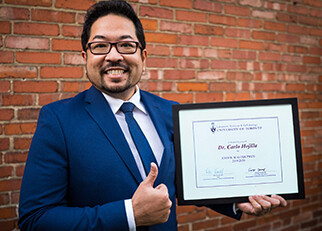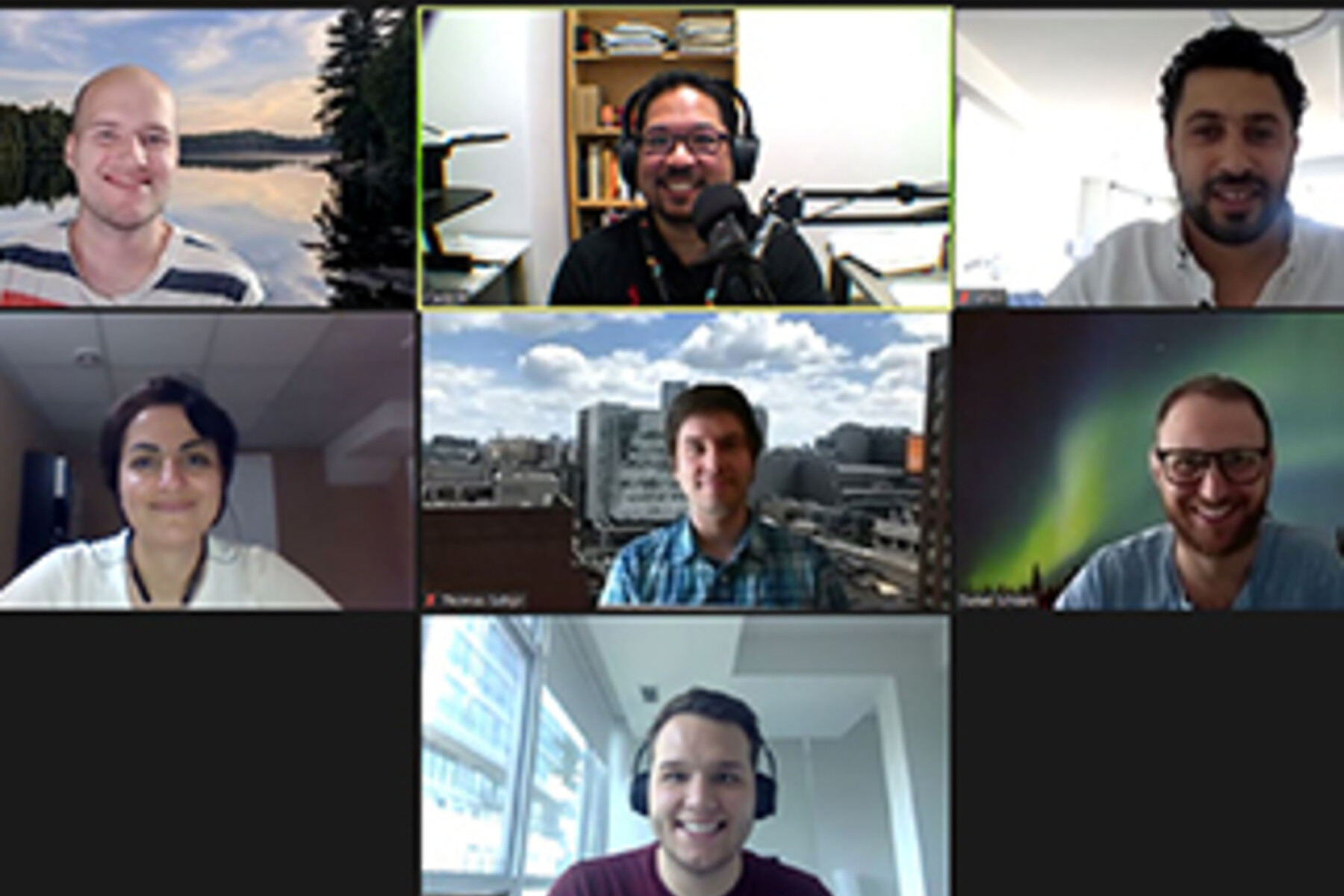
Dr. Hojilla, Assistant Professor in Laboratory Medicine & Pathobiology at the University of Toronto, and based at Mount Sinai and Markham-Stouffville Hospitals, has been awarded the John B. Walter Prize for Course Design and Development.
Recognized for his development of the ‘Transition to Discipline’ course for residents, more affectionately known as ‘Bootcamp’, Dr Hojilla used his own experiences as a resident in LMP to refine the educational offering for incoming residents.
While completing his PhD in medical biophysics at U of T, he had the opportunity to work with a pathologist which left a huge impression on him. After defending his thesis and medical school, he joined U of T’s Residents Training Program in Anatomical Pathology (AP), followed by a Fellowship in Hematological Pathology (HP).
Transitioning from a research PhD to a clinical laboratory was a steep learning curve. “I thought I knew how a laboratory worked coming into my residency training, but I quickly realized I didn’t,” said Hojilla.
“In the research lab, you are encouraged to troubleshoot, figure a way around an experiment, and try different things. But in a clinical setting, standardization and protocols are incredibly important. We are, after all, playing a vital role in a patient’s diagnosis.”
He also struggled to make connections with his cohort. “Although we’re a small group (5-6 residents on the AP residency per year), you can get lost in such a big department and rotating through the various hospital laboratories means constant change,” says Hojilla. “I didn’t really build a strong connection with my peers until 4th year when we were preparing for exams.”
The main purpose of Bootcamp was to fill knowledge gaps before starting a residency program.
Traditionally, undergraduate and medical students get exposed to very little pathology teaching so when they arrive in a residency program, they often have large gaps in their knowledge.
Hojilla experienced this first-hand, “The traditional way was a sink or swim approach – you were launched at the deep end into a pathology rotation without really having much knowledge of how a laboratory works.”
The Bootcamp brings the cohort together for four weeks at the start of their residency and gives them a crash course in pathology and how to work in a clinical laboratory.
“A happy side-effect of bootcamp is resolving some of the issues I experienced in my residency,” adds Hojilla. “The cohort get real time to bond and make connections. It promotes a great sense of community among the trainees that normally doesn't happen until much later, if at all. It’s a real joy to see them as strangers on day one, and at the end of the four weeks they’re connecting on Whatsapp, Facebook, and all manner of ways.“
Being recognized through the John B. Walter Prize is, naturally, a great honour for Hojilla and the team.
“To be recognized by colleagues like this is a real achievement. Also seeing the residents progress and receive their feedback indirectly, and directly, is such a heartwarming thing and motivates me to do more.”
Dr Hojilla has also been asked to roll out the Bootcamp nationally as other residency training programs across Canada have acknowledged the need to transition trainees more formally.
The pandemic has delayed this advancement, but also played a helpful role. Having already adapted it to a more modular and flexible format, they were forced to move everything online which makes the process of rolling it out nationally next summer much easier.
“The bootcamp has been successful due to the support from the residents, but more importantly, from the help and support from my colleagues in teaching, including the technical and clinical staff. It was quite an undertaking to build this program and so many have donated their time to it. It’s been fantastic working with so many helpful and collaborative people.”
The LMP Annual Celebration of Excellence 2020: find out who else received an award.
The Residency Training Programs at LMP
A day in the life of a pathology resident by Henry Xie
Dr. Carlo Hojilla's faculty profile
My time as an Anatomical Pathology resident: Dr. Carlo Hojilla

